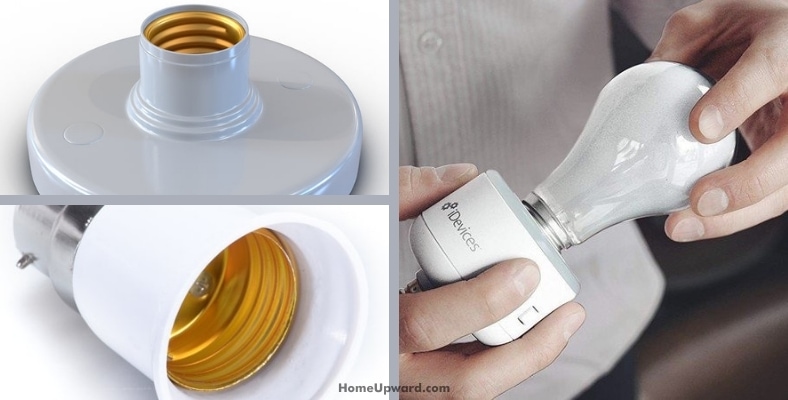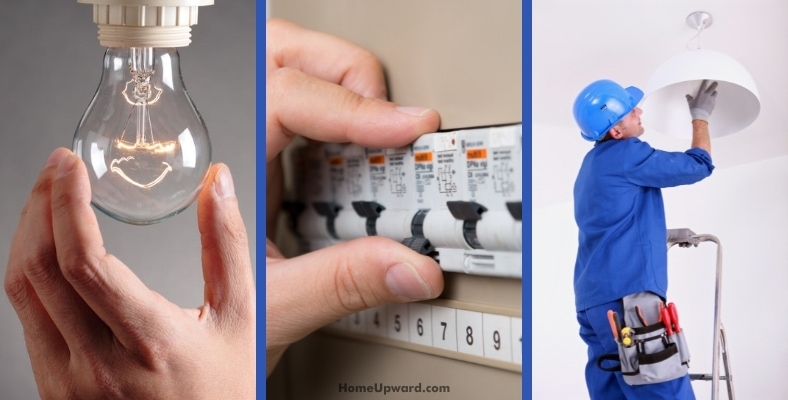It’s one of the most common home maintenance tasks around – but is changing a light bulb dangerous? Can you be electrocuted when doing it? Read on for the hard facts (and how to stay safe).
Contents
Can I get electrocuted changing a light bulb?
It’s possible but unlikely to get electrocuted while changing a light bulb. In most cases with a standard home alternating current (AC) voltage of 110 to 220 volts the worst case should be an unpleasant shock.
The single most important thing that you can do to an prevent electrical shock while changing a light bulb is to either turn the fixture off using the light switch or using the circuit breaker on the fuse box.
Can a light bulb socket shock you?
The larger portion of the bulb socket (the threaded base that a light bulb screws into), when properly wired, has no voltage potential and therefore can’t shock you. However, you can get an uncomfortable electric shock if you get your fingers deeper inside the socket near the small “live” voltage contact in the center.
The main electrical danger while changing a light bulb is simply the fact that the fixture that the bulb is in and often hot or having to work off of the floor can trigger indirect hazards. For example, touching a hot bulb can make you jump and lose your grip, or using a poor ladder, etc., can cause you to unintentionally grab the light fixture and socket, touching the metal conductor or nearby wiring if exposed.
As a rule you should always be careful and take precautions just in case. “Best safe than sorry” as saying goes – especially when dealing with hot bulbs.
Do you need to turn off power to change a light bulb?
Technically speaking no, you don’t have to turn off power to change many light bulbs. However, it’s the right saftey practice to follow.
That’s especially true with fluorescent bulbs and similar as they operate at higher voltages coming from the light ballast.
Hot light bulb precautions
If a light bulb has been on for more than a few minutes, a good practice is to switch off power to it a while and then check to see if it’s still hot by holding your hand close to it and feeling for heat radiating. Some bulbs can get extremely hot – especially halogen types.
Incandescent bulbs for example can reach up to about around 480°F (250 °C) which can burn your fingers. CFL and LED bulbs run fairly cool so they’re rarely too hot to handle, although the base ends can get very warm depending on the model.
What happens if you unscrew a light bulb while it is on?
Most of the time bulbs such as LED and incandescent can be unscrewed without any real issue, although in some cases there may be a tiny bit of arcing when the bulb is still close to the electrical contacts inside the socket.
However, there’s always a change where the rapid good & poor connection can cause an old or new bulb to fail if it’s still switched on:
- Changing a very hot bulb such as incandescent, halogen, xenon, or other types while hot can cause the filament to break, blowing the bulb. Hot filament bulbs are sensitive to shock and vibration or other factors.
- Ceiling light fixtures or other types with CFL fluorescent bulbs should be turned off if possible. They can be sensitive to improper installation during removing or installing them, causing the bulb to partially fail or start flickering.
As a rule, always turn off the power before changing a bulb to avoid accidentally blowing it or causing other problems.
Turn the power off, and only touch the bulb, and you’ll be fine.





